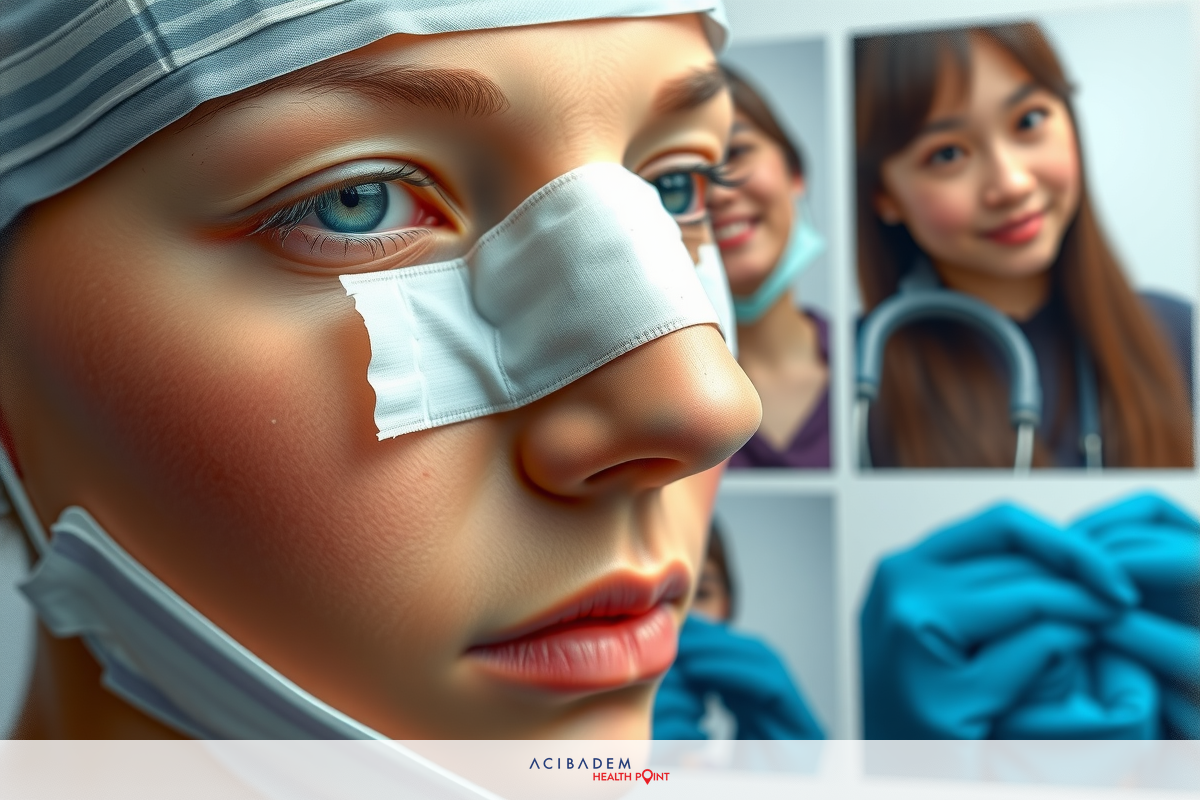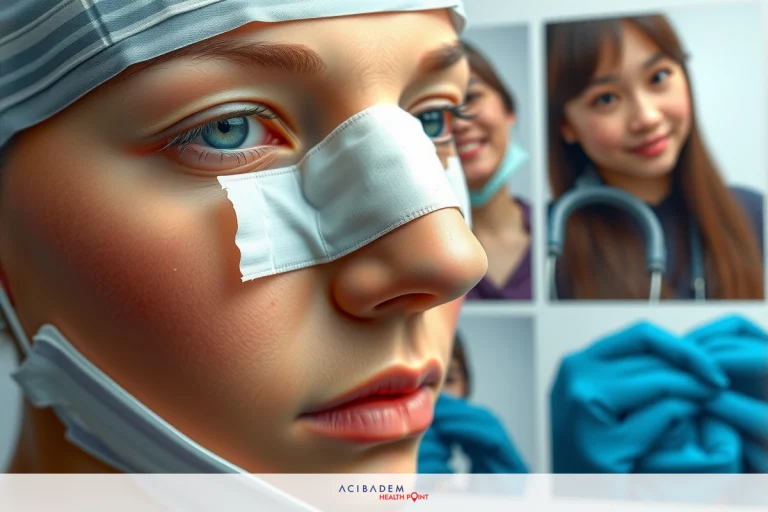Infection After Rhinoplasty Surgery
Infection After Rhinoplasty Surgery Rhinoplasty surgery, also known as a nose job, is a common procedure designed to reshape or resize the nose for cosmetic or medical reasons. Like any surgical procedure, it carries certain risks, including the potential for post-operative infection. While this complication is relatively rare thanks to modern surgical techniques and strict hygiene protocols, it’s crucial for patients to be aware of the signs and symptoms.
Prevention of infection is a key concern both for surgeons and patients. The surgeon will take steps to reduce the risk, such as using sterile equipment and prescribing antibiotics if necessary. Meanwhile, patients can contribute significantly to prevention efforts through proper aftercare, including keeping the surgical area clean and following all post-operative instructions closely. If an infection does occur despite these precautions, prompt treatment is essential to prevent further complications.
Prevention of Infection
In the context of rhinoplasty surgery, preventing infection is an ongoing effort that begins even before the procedure itself. Medical professionals use a variety of strategies to minimize the risk. First and foremost, the surgical environment must be impeccably clean. This includes not only the operating room but also all instruments and equipment used during the procedure. Surgeons and their teams follow strict hygiene protocols, such as washing hands thoroughly and wearing protective clothing, including masks, gloves, and gowns.
Patients also play a critical role in preventing post-operative infections. As part of the preoperative preparation, patients may be advised to stop smoking, limit alcohol intake, and ensure they are in good general health before surgery. These measures can help bolster the body’s natural defenses against infection. Additionally, patients may be prescribed antibiotics to take before and after surgery as a preventative measure. It’s crucial that patients follow these instructions carefully, as improper or incomplete use of antibiotics can contribute to antibiotic resistance.
The aftercare period following rhinoplasty surgery is also a vital time for infection prevention. Patients are typically provided with detailed instructions on how to care for their surgical site at home. This often includes guidance on cleaning the area, changing dressings, and what signs of infection to watch out for. By adhering strictly to these guidelines, patients can significantly reduce their risk of developing an infection after rhinoplasty surgery.
Treatment of Infection
Despite careful prevention efforts, there may still be instances where an infection develops after rhinoplasty surgery. Early detection is key to successful treatment. Patients should be vigilant for signs of infection, which can include redness, swelling, pain, or discharge at the surgical site, as well as fever or a general feeling of being unwell. If any of these symptoms occur, it’s important to contact the healthcare provider without delay.
Treatment strategies for post-rhinoplasty infections are tailored to each individual situation. For most minor infections, oral antibiotics may be sufficient to eliminate the bacteria causing the infection. It’s crucial that patients take the full course of antibiotics as prescribed by their healthcare provider, even if symptoms improve before the medication is finished. Failure to do so can lead to antibiotic resistance and a harder-to- treat infection.

In more severe cases of infection, hospital admission may be necessary. Here, intravenous antibiotics can be administered for a more aggressive approach to treatment. In rare cases where an abscess forms in the nose,
surgical intervention might be required to drain the affected area. Infections that are left untreated or not treated promptly can potentially lead to more serious complications, such as tissue damage or sepsis. Therefore, timely and appropriate treatment is crucial when dealing with post-operative infections following rhinoplasty surgery.
Frequently Asked Questions
How common are post-operative infections after rhinoplasty surgery?
Post-operative infections following rhinoplasty surgery are relatively rare, thanks to the strict hygiene protocols and advanced surgical techniques employed by medical professionals. However, it's important to be aware of the signs and symptoms of infection and to seek prompt medical attention if any concerns arise.
What are the signs of an infection after rhinoplasty surgery?
Signs of infection may include redness, swelling, pain, or discharge at the surgical site. Patients should also watch out for fever or a general feeling of being unwell. If any of these symptoms occur, it is crucial to contact your healthcare provider for further evaluation and guidance.
Can I prevent infection after rhinoplasty surgery?
While it's not possible to guarantee complete prevention of infection, there are steps you can take to minimize the risk. Follow the preoperative instructions provided by your surgeon, maintain good overall health before surgery, and adhere strictly to all post-operative care guidelines. This includes keeping the surgical area clean, changing dressings as instructed, and taking prescribed antibiotics if recommended by your healthcare provider.
How are post-operative infections treated?
Treatment for post-operative infections will depend on the severity of the infection. Minor infections may be treated with oral antibiotics, which should be taken as prescribed for the full duration even if symptoms improve. More severe infections may require hospital admission for intravenous antibiotics or, in rare cases, surgical intervention to drain abscesses or remove infected tissue.
What are the potential complications of untreated infections after rhinoplasty surgery?
If left untreated or not treated promptly, post-operative infections following rhinoplasty surgery can potentially lead to more serious complications. These can include tissue damage, spreading of the infection to surrounding areas, or even the development of sepsis, a life-threatening condition. It's crucial to seek medical attention at the first sign of infection to prevent these complications from occurring.











